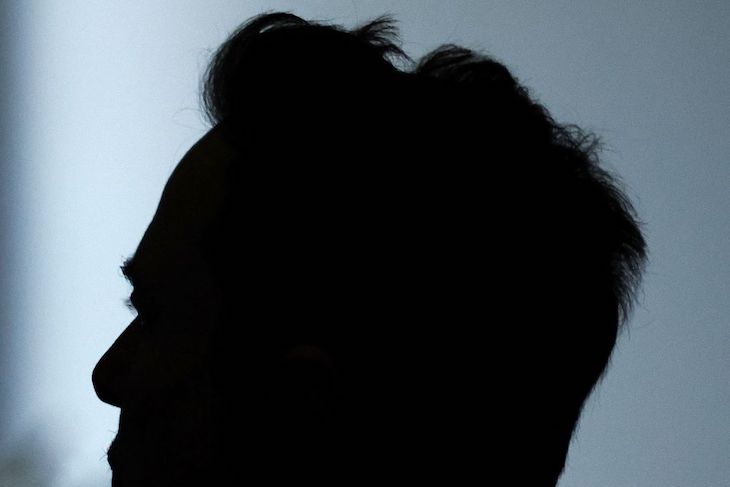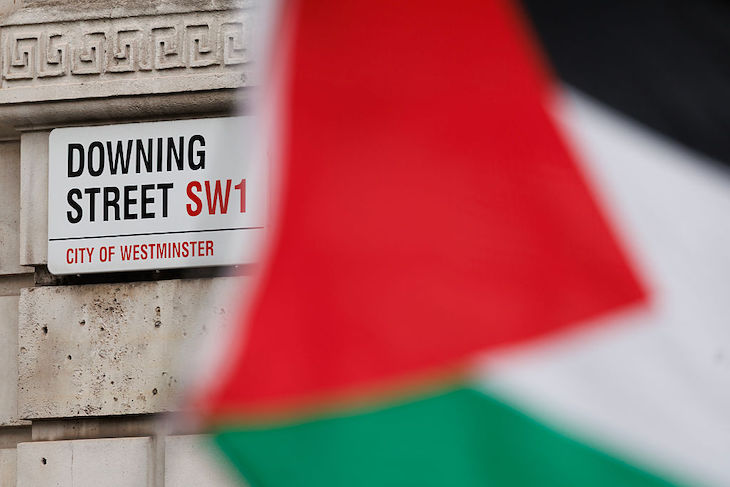‘When Tolkien wrote about the hobbits, he was referring to the gentlefolk of the English shires, who don’t realise the horrors that take place far away,’ Elon Musk wrote on X in response to the news of the fatal stabbing of Wayne Broadhurst in Uxbridge. ‘They were able to live their lives in peace and tranquility,’ Musk explained, ‘but only because they were protected by the hard men of Gondor.’
‘When Tolkien wrote about hobbits, he was referring to the gentlefolk of the English shires,’ Elon Musk said
The billionaire X owner was employing this literary allusion, he said, to propose a new breed of Tolkienesque ‘hard men’ – he had in mind specifically the far-right activist Tommy Robinson – to defend the artless Shire Folk from their foreign enemies.
Musk developed the theme a couple of days later in a podcast appearance on the Joe Rogan Experience. ‘JR Tolkien based the hobbits on people he knew in small town England…lovely people who liked to, you know, smoke their pipe, and have nice meals.’ But having ‘no exposure to the dangers of the world,’ this guileless little people had never appreciated how fragile their bucolic idyll really was in the absence of the ‘hard men’: ‘one day, 1,000 people show up in your village of 500 and start raping the kids.’
The obsession of the contemporary tech right with The Lord of the Rings is well-established. But Musk is hardly the first of Tolkien’s readers to employ hobbits as stand-ins for the British. CS Lewis’ brother Warren, one of the first of the author’s friends invited to see a draft version of the novel in 1949, spotted the association right away. And a depiction of British life as essentially hobbit-like long predates The Lord of the Rings itself.
‘The British people are by nature peaceful and kindly,’ suggested Harold Nicholson in his 1939 Penguin Special Why Britain is at War, written just a couple of weeks after the invasion of Poland. Such a ‘sleepy, decent and most pacific race’ could, Nicholson, said, only be ‘stirred to do unpleasant things’ such as go to war by the direst of necessities.
In presenting the British as indolent, slightly comic innocents – though quietly indefatigable when pressed – Nicholson was drawing on a rich vein of national imagery from folklore and literature that ranged from Jack and the Beanstalk through Chesterton’s Deep England reveries to Sidney Strube’s ‘Little Man’ in the interwar Daily Express. The preexistence of such cultural tropes meant that when Tolkien’s British audience in the 1950s encountered Frodo and Sam for the first time, it was easy enough for them to see the mythopoeic epic of the War of the Ring as a kind of parable for their own recent real-life ordeal, and to slot their own experiences in, as it were, to the world of Hobbiton.
The Shire Folk myth has remained ever since the primary way the British have chosen to think about our great national fable that is the Second World War. It is, after all, flattering for us to imagine ourselves as the hobbits of the piece – a basically civilized and peace-loving people, tucked away in the farthest northwestern corner of the European map, minding our own business, largely innocent of the wickedness of the rest of the continent, only drawn unwillingly into the fray by a monstrous foreign foe. In such a reading, it is our native wit and amateur genius for ‘muddling through’ which defeated the Nazis, rather than any professional tradition of belligerence. Our warriors, though sometimes in uniform, remained fundamentally civilian in outlook: we focus instinctively on the eccentric boffins of Bletchley Park and Operation Mincemeat, or the unlikely have-a-go heroes of the commandos and SOE. Mark Rylance, the mild-mannered skipper of a ‘little ship’ in Christopher Nolan’s Dunkirk (2017) is our preferred type of wartime protagonist – no brawny uniformed Achilles, but rather a West Country Frodo sailing into battle in knitted pullover, armed with nothing more martial than a hot, sweet cup of tea.
It’s a charming vision of the past which has allowed us to entirely misunderstand the war and misunderstand ourselves. Britain ultimately prevailed in 1945 not because we were hobbits, nor in spite of being hobbits, but because we were nothing like them at all. We won because we were an imperial power capable of ruthless state-directed violence. We controlled an empire won by centuries of force that could be mobilised for the purposes of calculated, brutal, total war. In the final seven months before VE Day, we dropped the equivalent of seventeen Hiroshima-sized bombs on German cities and killed perhaps 100,000 people with them, most of them civilians. Arthur ‘Bomber’ Harris was among the few British high commanders prepared to spell out exactly what this kind of cold-blooded, devastatingly effective warmaking meant: ‘[We] bring masonry crashing down on the top of Boche; kill Boche; terrify Boche.’
It was terrifying, indiscriminate, morally deplorable – and it worked. We, as it turned out, were much better at killing Germans than Germans were at killing us, though admittedly that was not for their want of trying. Our barbarism destroyed Nazism. It is understandable why we have never really wanted to dwell on that too much.
Tolkien, incidentally, was never taken in by the Shire Folk myth for a moment. His Oxfordshire home was on the flightpath of nighttime RAF raids against Germany, and he fully understood what those aircraft were doing. Late in the war, he wrote frankly of his hatred of aerial bombing to his son Christopher (training abroad, in a touch of dark irony, to be a pilot).
‘The destruction of Germany, be it 100 times merited, is one of the most appalling world-catastrophes,’ he wrote in early 1945: ‘there seem no bowels of mercy or compassion, no imagination, left in this dark diabolic hour.’
What he called ‘the War of the Machines’ was ‘leaving, alas, everyone the poorer, many bereaved or maimed and millions dead, and only one thing triumphant: the Machines.’ Tolkien had no illusions that his countrymen were hobbits.
We have never needed ‘hard men’ to protect us. We ourselves are the hard men. It’s we that everyone else has generally needed to be protected from. Musk is imagining a Britain that never existed, not to reconstruct an accurate past but to justify contemporary xenophobia. To deploy the Shire Folk myth to cast immigrants as existential threats and opportunistic rabble-rousers as defenders of the peace is to exploit a fundamental misunderstanding of history. This myth risks justifying new cruelties, often against people from the very regions of the globe where British power once held sway and who ironically fought in the nation’s service in the Second World War.







Comments